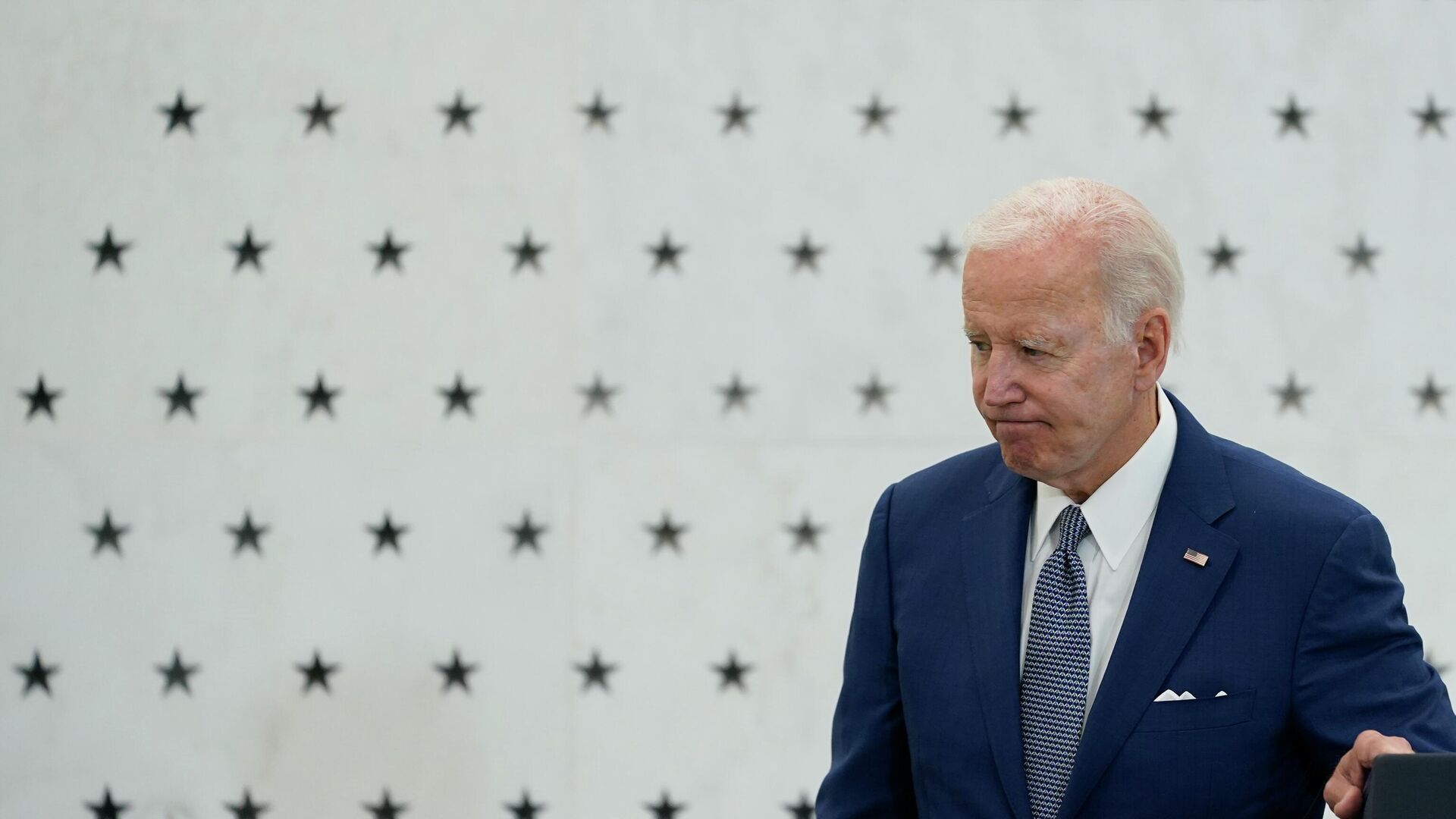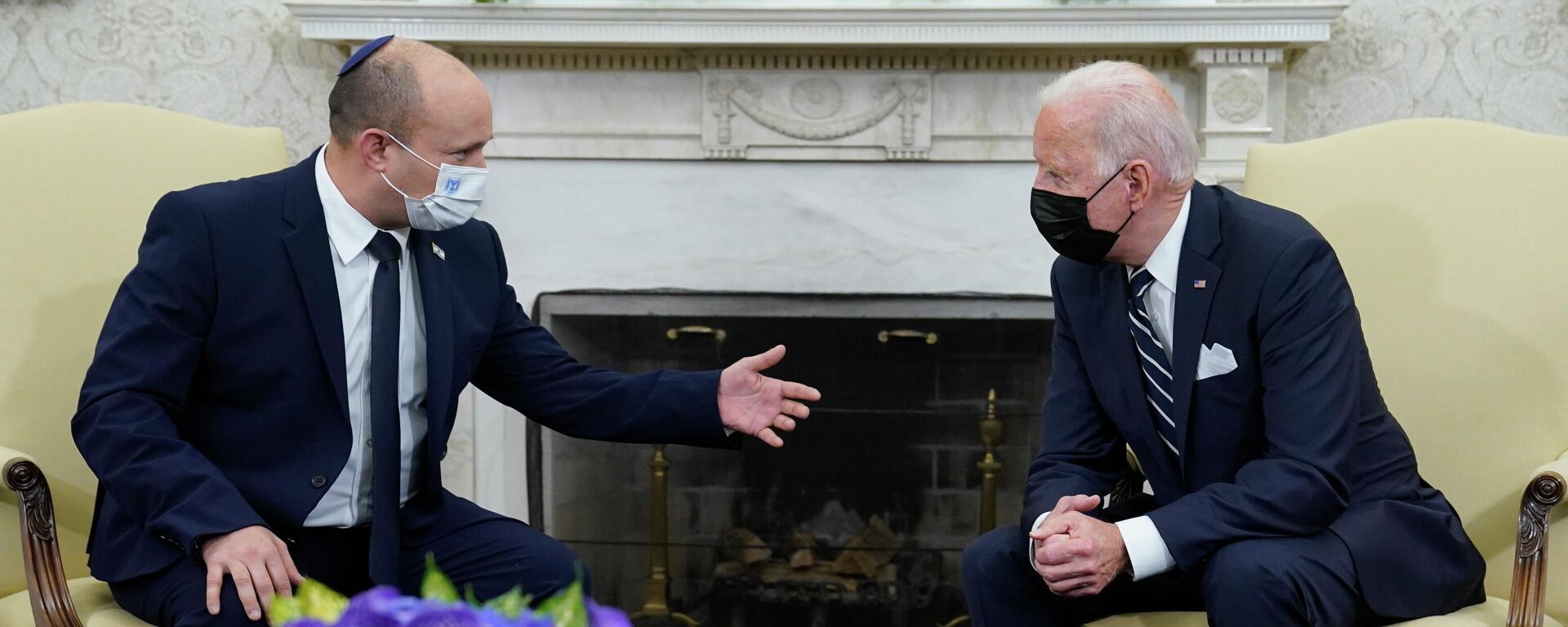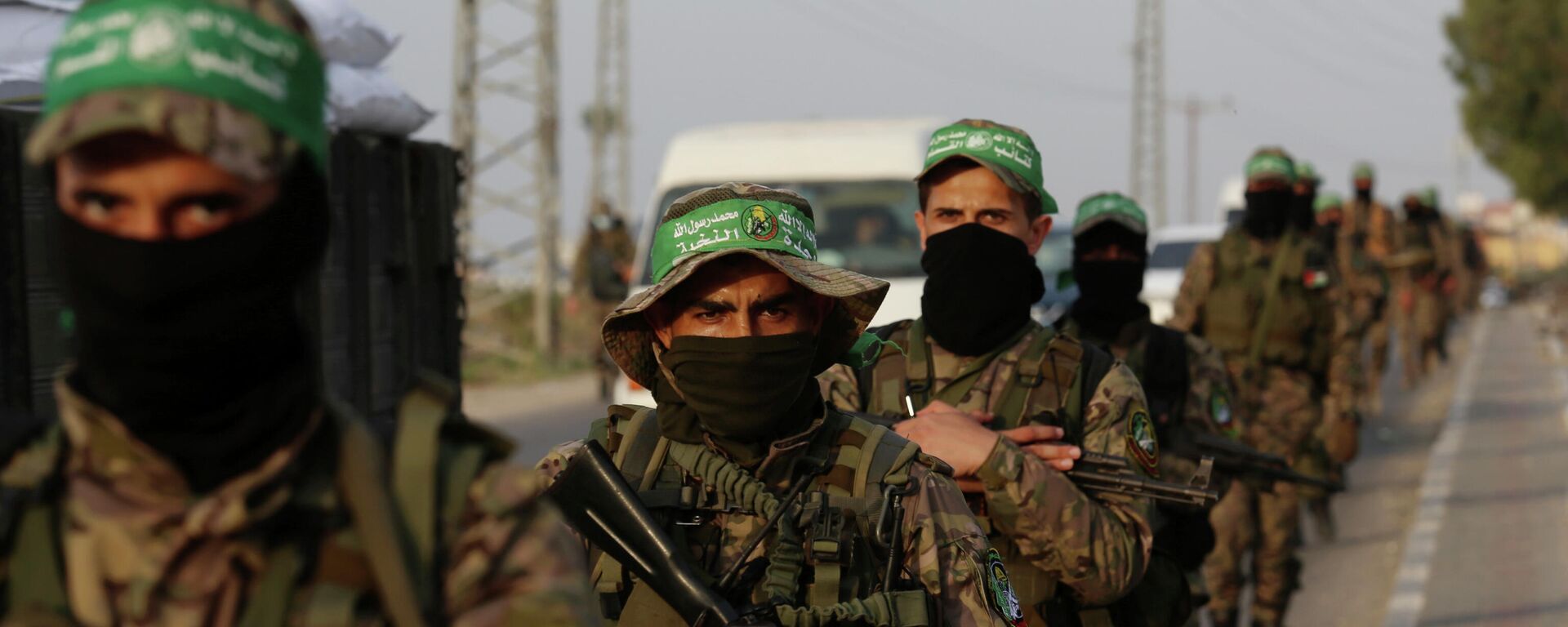Biden: Saudi Arabia Trip Important for Countering Russia, China & Keeping US Leadership Afloat

© AP Photo / Susan Walsh
Subscribe
Next week, the US president is anticipated in the Middle East for the first time since he took office last year. The trip will, however, take place amid a severe energy crisis in the US and the backlash of sanctions against Russia. One of Biden's primary goals there is said to be a normalization deal between Israel and Saudi Arabia.
In a fresh op-ed in the Washington Post on Saturday, US President Joe Biden justified the need for his upcoming visit to Saudi Arabia by saying that direct interaction with the kingdom is necessary to confront Russia, win the competition with China and stabilize the Middle East region, which is "is more stable and secure than the one my administration inherited 18 months ago."
Ahead of his much-maligned trip, Biden emphasized, among other things, that the Saudi authorities are working with the US administration to expand oil supplies to the world market and lower oil prices.
According to the president, "a more secure and integrated Middle East benefits Americans in many ways." Biden noted that the supply systems the US relies on and global trade both depend on the region's waterways. He underscored that its energy supplies are essential for reducing the impact of Russia's special military operation in Ukraine on the world's market and, in particular, the US itself, given that the sanctions against Russia caused a sharp rise in energy prices.
Diplomacy, Biden Style, For the Win
Biden wrote that one of the main purposes of his visit is to ensure "diplomacy and cooperation" in the Middle East, as the prosperous region is less likely to breed violent extremism "that threatens our homeland or new wars that could place new burdens on US military forces and their families."
For such a noble cause, the president declared that he would persevere in diplomacy, even including face-to-face meetings, in order to achieve the goals of the United States.
Since the task of the US president is to keep the country "strong and secure," Biden indicated one of the key goals of this trip.
"We have to counter Russia’s aggression, put ourselves in the best possible position to outcompete China, and work for greater stability in a consequential region of the world," he wrote. "To do these things, we have to engage directly with countries that can impact those outcomes. Saudi Arabia is one of them, and when I meet with Saudi leaders on Friday, my aim will be to strengthen a strategic partnership going forward that’s based on mutual interests and responsibilities, while also holding true to fundamental American values."
Furthermore, Biden boasted that he would be the first American leader to fly directly from Israel to the Saudi city of Jeddah, where the Gulf Cooperation Council will meet. His predecessor, Donald Trump, was proud to be the first US president to fly from Saudi Arabia to Israel.
"In Jiddah, leaders from across the region will gather, pointing to the possibility of a more stable and integrated Middle East, with the United States playing a vital leadership role," he offered.
Biden devoted a separate and rather extensive part of his article to criticism of the previous administration, which allegedly undermined the fragile balance of peace in the region with its actions. Separate mentions were given to Iran and its nuclear deal, as well as the war in Yemen.
"In my first weeks as president, our intelligence and military experts warned that the region was dangerously pressurized. It needed urgent and intensive diplomacy," Biden touted his peacemaking efforts. "To restore deterrence, I ordered airstrikes in response to the attacks against our troops and began serious diplomatic outreach to bring about a more stable region."
Biden also touched on the success of the completion of the US military operation in Iraq, with a focus on training the country's own army and supporting the "global coalition against the Islamic State we forged when I was vice president, now dedicated to preventing ISIS* (Daesh) from resurging."
In addition to praising his administration's efforts to broker a truce in Yemen, joining forces with allies in pressuring Iran to return to a 2015 deal (Biden emphasized that he expects Iran to accept the US terms), he also praised the US for an active role in resolving the conflict between Israel and the Gaza Strip in May last year.
"We’ve worked with Israel, Egypt, Qatar and Jordan to maintain the peace without permitting terrorists to rearm," he wrote. "We also rebuilt US ties with the Palestinians. Working with Congress, my administration restored approximately $500 million in support for Palestinians, while also passing the largest support package for Israel — over $4 billion — in history."
Killing Khashoggi Is Not Good, But Saudis Play Along
In light of the widespread criticism of the administration turning a blind eye to Saudi Arabia's alleged human rights violations and the high-profile killing of journalist Jamal Khashoggi - allegedly authorized by the kingdom's top leadership - Biden stressed he did not forget the purported atrocities of his key partner in the region. He noted that the White House "has made clear that the United States will not tolerate extraterritorial threats and harassment against dissidents and activists by any government."
Nevertheless, Biden asserted, his policy was to "reorient — but not rupture — relations with a country that’s been a strategic partner for 80 years."
According to Biden, Saudi Arabia is currently working with his administration's experts to "help stabilize oil markets with other OPEC producers." Moreover, the kingdom has worked to rebuild unity among the six countries of the Gulf Cooperation Council, and has completely backed the ceasefire in Yemen, among other efforts, Biden noted.
Among the leaders Biden will meet will be Crown Prince Mohammed bin Salman, who is suspected in the US of being involved in the Khashoggi murder.
"I know that there are many who disagree with my decision to travel to Saudi Arabia. My views on human rights are clear and long-standing, and fundamental freedoms are always on the agenda when I travel abroad, as they will be during this trip, just as they will be in Israel and the West Bank," he emphasized.
The president reiterated his opinion that the region is in a much better position at the moment than it was a year and a half ago when his administration came into office, and the former enemies "have reestablished relations."
"Next week, I will be the first president to visit the Middle East since 9/11 without US troops engaged in a combat mission there. It’s my aim to keep it that way," he concluded.
*Daesh (also known as ISIS/ISIL/IS) is a terrorist organization outlawed in Russia and many other states




